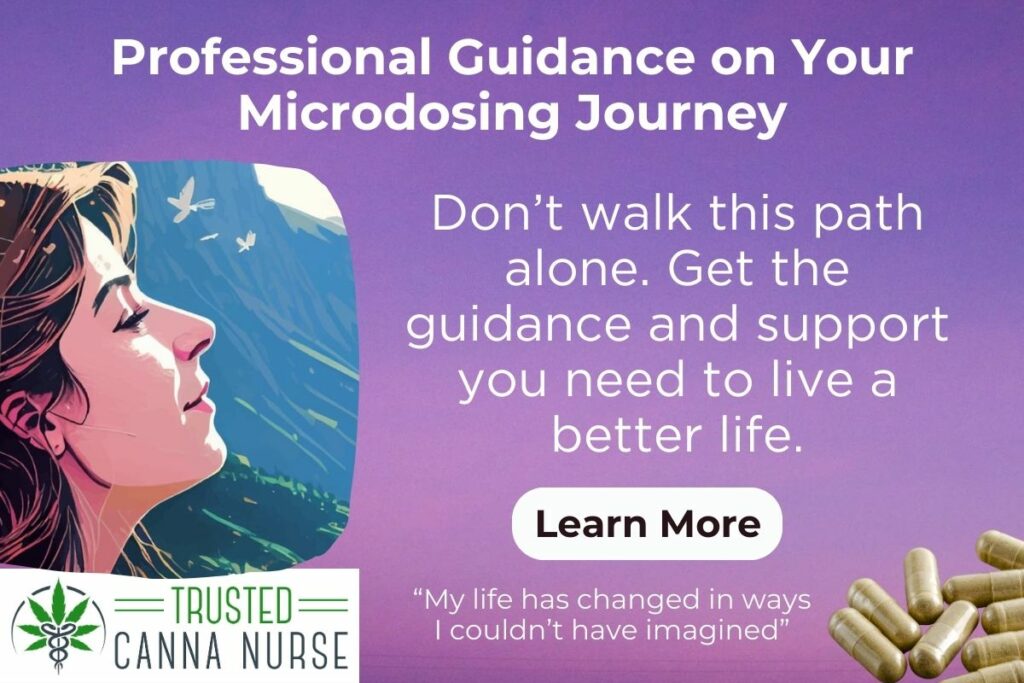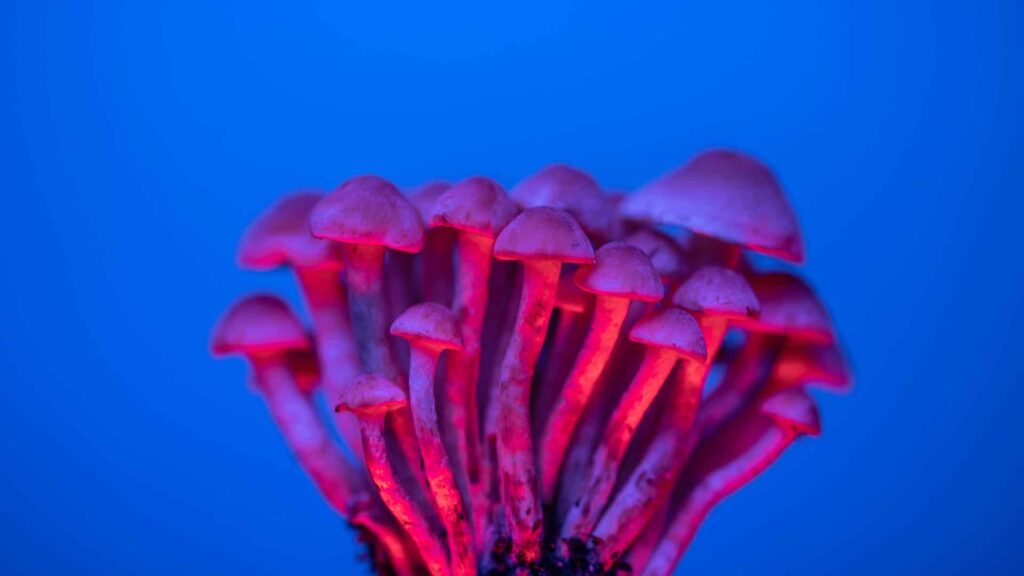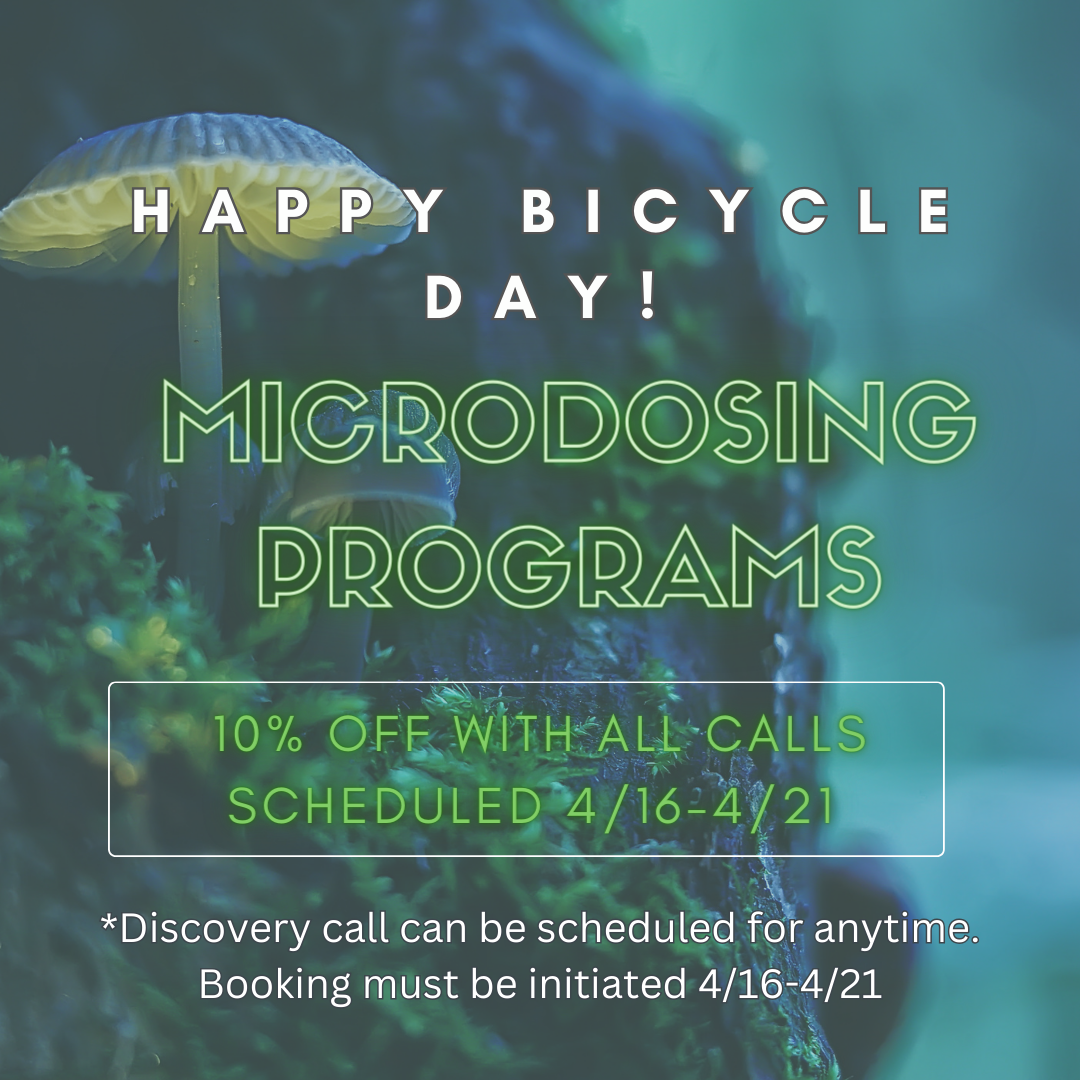Psilocybin, the active ingredient in psychedelic mushrooms, has been garnering attention in recent years for its potential to treat various forms of addiction. With promising results in limited early studies, researchers are exploring the use of this naturally occurring compound to address dependencies on alcohol, nicotine, and even harder drugs.
Numerous institutions worldwide have conducted and continue to investigate the effectiveness of psilocybin in treating addiction disorders like alcohol use disorder and opioid use. Dr. Roland Griffiths, a pioneer in this field, has shared findings that suggest the hallucinogenic compound could help treat not only addiction but also depression and anxiety.
As mental health and addiction issues continue to pose challenges for individuals and communities, the exploration of innovative treatments like psilocybin offers hope for breakthroughs in understanding and addressing these complex problems. Careful research and clinical trials are needed to further establish the safety and efficacy of psilocybin as a potential game-changer in addiction therapy.
The Nature of Addiction
Addiction is a complex and multifaceted disease of the brain that affects an individual’s behavior, emotions, and overall well-being. It is characterized by compulsive and repetitive substance use despite harmful consequences, as well as an inability to control or cease the harmful behavior. Understanding the nature of addiction is crucial for identifying potential treatment options.
One of the critical factors that contribute to the development of addiction is the changes induced in the brain’s reward system and neurotransmitters. The brain releases dopamine, a neurotransmitter responsible for the sensation of pleasure and reward, in response to substances like alcohol, nicotine, and drugs. This stimulates the reward pathway, prompting an individual to repeat the experience to maintain the pleasurable feeling.
Over time, the brain’s adaptability can result in a decreased sensitivity to dopamine, meaning that the individual requires increased amounts or more potent substances to achieve the same pleasurable effect. This process leads to tolerance, dependency, and ultimately, addiction. Moreover, these brain adaptations can also impair the prefrontal cortex, responsible for decision-making and impulse control, further exacerbating addictive behaviors.
Another aspect of addiction is the psychological aspect, which revolves around coping mechanisms to deal with negative emotional experiences or stress. When substances are used to self-medicate or escape, they can become a primary means to regulate emotions, ultimately leading to addiction.
There is also a genetic component, as some individuals are more predisposed to developing addiction due to their genetic makeup. However, genetics alone does not guarantee the development of addiction, as environmental and social factors also play a significant role.
In conclusion, addiction is a complex interplay of neurological, psychological, genetic, and environmental factors. The multifaceted nature of addiction presents challenges for treatment, necessitating a comprehensive and personalized approach for each individual. It’s in this context that novel therapies, such as psilocybin, are being researched for their potential in addressing addiction.
Psilocybin Overview
Psilocybin is a naturally occurring compound found in certain species of mushrooms, commonly referred to as “magic mushrooms” or “psychedelic mushrooms.” This substance has been used for centuries in various cultural and spiritual practices, and recently has gained attention in the field of mental health and addiction treatments.
Psilocybin works by interacting with the brain’s serotonin receptors, specifically the 5-HT2A receptors. This interaction leads to an alteration in perception, emotions, and cognition, often resulting in a profound experience that can have lasting psychological benefits. Research has shown that psilocybin has a low risk of toxicity and dependence, which makes it an attractive option for therapy when used in controlled clinical conditions.
A growing body of evidence suggests that psilocybin-assisted therapy can be effective in treating various substance use disorders (SUDs). Preliminary data from studies on alcohol and smoking addictions indicate that psilocybin administration can have promising effects on substance use. In combination with psychotherapy, the use of psilocybin has the potential to facilitate lasting changes in behavior and thought patterns, addressing the underlying issues that contribute to addiction.
In recent years, there has been an increased interest in utilizing psilocybin as a therapeutic approach for various mental health conditions. This has led to the establishment of guidelines and practical information for healthcare professionals in order to safely and effectively administer this treatment. The ongoing research and development of psilocybin-assisted therapy show great promise for its potential to revolutionize the field of addiction treatment and improve the lives of those struggling with substance use disorders.

Psilocybin and Brain Chemistry
Psilocybin is a naturally occurring compound found in some species of mushrooms, commonly known as “magic mushrooms.” It has a chemical structure similar to serotonin, a neurotransmitter responsible for mood regulation and emotional processing.
When ingested, psilocybin is converted to psilocin, its active form, which has the ability to alter electrical activity in the brain. The compound primarily impacts a region associated with emotional processing and internal awareness. Researchers have discovered that psilocybin reduces slow brain wave activity, which hinders communication between different parts of the brain.
One of the key findings of recent studies is that psilocybin appears to facilitate the formation of new connections between different brain regions. This enhanced connectivity may play an important role in the compound’s potential therapeutic effects on mental health disorders and addiction.
In the context of substance use disorders, psychedelic-assisted therapy using psilocybin has shown promising results. Researchers believe that the increased connectivity in the brain and the modulation of emotional processing could help individuals break free from addictive patterns and behaviors.
While more research is needed, initial findings suggest that psilocybin could represent a novel approach to treating various mental health disorders and addictive behaviors.
The Role of Psilocybin in Treating Addiction
Psilocybin is a naturally occurring psychedelic compound found in certain species of mushrooms. In recent years, it has gained attention for its potential therapeutic effects in treating addiction and various mental disorders.
Research shows promising results for psilocybin-assisted therapy in treating substance use disorders (SUDs). In a systematic review of four studies examining psilocybin for addiction treatment, 151 patients received doses ranging from 6 to 40 mg. Three of these studies focused on alcohol use disorder, while one study targeted tobacco use disorder.
Psilocybin’s therapeutic potential may be attributed to its ability to induce mind-altering and reality-distorting experiences known as hallucinations. These hallucinations can provoke emotional swings, feelings of detachment, and other psychological phenomena.
In multiple clinical trials, participants undergoing psilocybin-assisted therapy for addiction reported significant reductions in craving, improvements in mental health, and increased motivation for change. These findings suggest that psilocybin might offer an alternative approach to traditional addiction treatments, addressing both mental and physical aspects of addiction.
Moreover, psilocybin has been shown to be effective in treating other mental health conditions, such as depression and anxiety, which can often be comorbid with addiction. By targeting the underlying psychological issues driving addictive behaviors, psilocybin-assisted therapy may provide a more holistic approach to recovery.
While psilocybin holds promise as a tool for addiction treatment, it is essential to continue rigorous research and clinical trials. More extensive studies are needed to fully understand the long-term effects and safety of psilocybin-assisted therapy in addiction treatment. However, the current findings suggest that psilocybin has the potential to be a valuable resource in addressing addiction.
Evidence from Clinical Trials
Psilocybin, a naturally occurring psychedelic compound found in ‘magic mushrooms,’ has been the subject of various clinical trials for its potential to treat addiction. Research has shown that psilocybin, as a 5-HT2A receptor agonist, may be useful in treating substance use disorders (SUDs), including tobacco and alcohol addiction.
In a pilot study conducted by Johnson et al., 15 participants were enrolled in a 15-week course of smoking cessation treatment that incorporated psilocybin administration at weeks 5, 7, and 13. The results of this study showed promising outcomes, with participants exhibiting a significant decrease in their smoking habits.
Another systematic review assessed the efficacy of psilocybin in treating SUDs by examining clinical trials conducted over the past 25 years. Despite the limited number of trials included in the review, positive outcomes were observed. It was noted that psilocybin-assisted therapy, in conjunction with traditional therapeutic approaches, could be effective in treating addiction.
The Johns Hopkins Center for Psychedelic and Consciousness Research has been at the forefront of investigating the therapeutic potential of psilocybin. They have conducted various studies to gain a deeper understanding of the effects of psilocybin on the brain and its potential to treat addiction and other mental health disorders.
In terms of safety, psilocybin has been reported to have a favorable safety profile amongst psychedelic drugs. This further increases interest in psilocybin as a potential treatment for addiction and other mental health conditions, as safety concerns are a crucial factor in determining the viability of therapeutic options.
Overall, evidence from clinical trials and research studies suggests that psilocybin holds potential in treating addiction. Although more extensive research is needed to establish its efficacy and determine optimal treatment protocols and guidelines, the existing findings demonstrate a promising direction in the field of addiction treatment.
The Therapeutic Process
The therapeutic process involving psilocybin has recently gained attention for its potential in treating addiction. The substance, found in “magic mushrooms,” has shown promising results for tackling substance use disorders (SUDs) in a safe and effective manner.
In the therapeutic setting, psilocybin is administered under the guidance of trained specialists who monitor the patient during the course of the session. These sessions usually involve a carefully controlled environment designed to provide a comfortable and calm experience for the individual receiving the treatment.
Before the administration of psilocybin, patients undergo a thorough evaluation in which their medical history and psychological well-being are assessed. This is crucial to ensure the appropriateness of the treatment and to minimize any potential risks. Once deemed suitable, patients are educated about the process, given preparatory information, and encouraged to set intentions for their therapeutic experience.
During a psilocybin session, patients generally ingest a controlled dose of the compound and may be guided through various mindfulness exercises, relaxation techniques, or other therapeutic interventions. Trained professionals remain present to address any concerns, offer support, and monitor the patient throughout the experience.
Following the session, patients engage in an integration process in which they reflect on insights gained and explore ways to implement these learnings into their daily lives. This phase is crucial for promoting lasting change and supporting the individual’s long-term recovery efforts.
Overall, the therapeutic process using psilocybin revolves around careful preparation, a supportive environment, and mindful integration to maximize its potential in treating addiction. The FDA has even granted breakthrough therapy status to psilocybin for treatment-resistant depression and major depressive disorder, illustrating its potential in advancing mental health care.
Challenges and Controversies
There has been a resurgence of interest in using psilocybin, the active component in “magic mushrooms,” as a potential treatment for addiction. Despite promising results in clinical trials, challenges and controversies still remain in the field.
One major challenge is the lack of funding for research on psilocybin due to its classification as a Schedule I substance in many countries, including the United States. This designation makes it difficult for researchers to access the drug and limits the scope of clinical trials. Furthermore, concerns regarding the safety and potential misuse of hallucinogenic substances further hinder funding and public support for psilocybin research.
Another challenge is determining the appropriate therapeutic settings and protocols for administering psilocybin. In clinical trials, the drug is often combined with therapy to optimize its potential benefits. However, establishing standardized guidelines for administration and therapeutic approaches, such as optimal dosing or duration of treatment, remains a work in progress.
In addition to these challenges, the stigma surrounding the use of hallucinogens in medicine poses a barrier to wider acceptance and use. Many view hallucinogens as dangerous and illicit substances with no therapeutic value. This perception has been fueled by misinformation, historical biases, and negative media portrayals of drug-induced experiences.
Finally, ethical questions have arisen in the field, such as whether it is appropriate to use a mind-altering substance like psilocybin within a therapeutic context. Concerns have also been raised regarding the potential for psilocybin to be normalized and unjustifiably promoted as a panacea for various mental health disorders.
Overall, despite the potential therapeutic benefits of psilocybin for addiction treatment, challenges and controversies persist. Overcoming these obstacles to advance research and develop effective, evidence-based treatments will require open-mindedness and collaboration among researchers, clinicians, patients, and policymakers.
Future Research Directions
Psilocybin is showing promising potential in the treatment of addiction, particularly with alcohol and substance use disorders. As research advances, several areas could be explored to better understand and maximize its therapeutic benefits.
One direction for future research is examining the long-term effects of psilocybin treatment. Studies have demonstrated a reduction in heavy drinking days and increased abstinence, but further research should focus on the duration of these effects and whether repeated treatments will maintain or enhance the benefits over time.
Another research path is investigating the optimal therapeutic dosage of psilocybin. Current studies have used varying doses with positive outcomes; however, determining the most effective dose range can help maximize treatment efficacy while minimizing potential adverse effects for patients.
The role of therapy in conjunction with psilocybin treatment also warrants further examination. Most studies have incorporated some form of psychotherapy as part of the treatment protocol, but there is a need to understand which therapeutic approaches work best synergistically with psilocybin to facilitate addiction recovery.
Additionally, understanding the neurobiological mechanisms underlying the therapeutic effects of psilocybin may lead to valuable insights and the development of more targeted treatments. This could involve exploring the specific neural pathways and receptors affected by psilocybin and how these changes influence addiction-related behaviors.
Finally, distinguishing the potential benefits of psilocybin treatment across different types of addiction and patient populations will be critical for tailoring interventions to individual needs. While existing studies have primarily focused on alcohol and tobacco use disorders, research should be extended to other addictive behaviors, as well as diverse demographic groups, to better understand the scope of psilocybin’s applicability in addiction treatment.
By addressing these future research directions, we can enhance our understanding of psilocybin’s potential in the treatment of addiction, paving the way for more effective, targeted interventions that improve patients’ quality of life.
Psilocybin to Treat Addiction Final Thoughts
Psilocybin, the active ingredient in psychedelic mushrooms, has shown potential as a treatment for various forms of addiction, including alcohol, nicotine, and other substance use disorders. In a systematic review, it was found that psilocybin-assisted therapy led to a beneficial effect on substance use disorder symptoms when combined with some form of psychotherapy1. This promising evidence suggests that psilocybin could offer therapeutic breakthroughs in addiction treatment.
Research has indicated that psilocybin might help build more connections between different parts of the brain, potentially helping individuals overcome addictive behaviors and better manage their mental health2. Moreover, notable experts such as Dr. Roland Griffiths have acknowledged the potential of psilocybin as a treatment for depression, anxiety, and substance abuse3.
While these early studies shed light on the potential therapeutic effects of psilocybin, further research is needed to validate the efficacy and safety of this approach. As such, it is crucial for researchers to conduct additional clinical trials to better understand the optimal dosages, appropriate settings, and complementary therapeutic strategies involved in psilocybin-assisted treatment for addiction.
Last Updated on January 28, 2024 by Megan Mbengue, BSN, RN, CHPN


